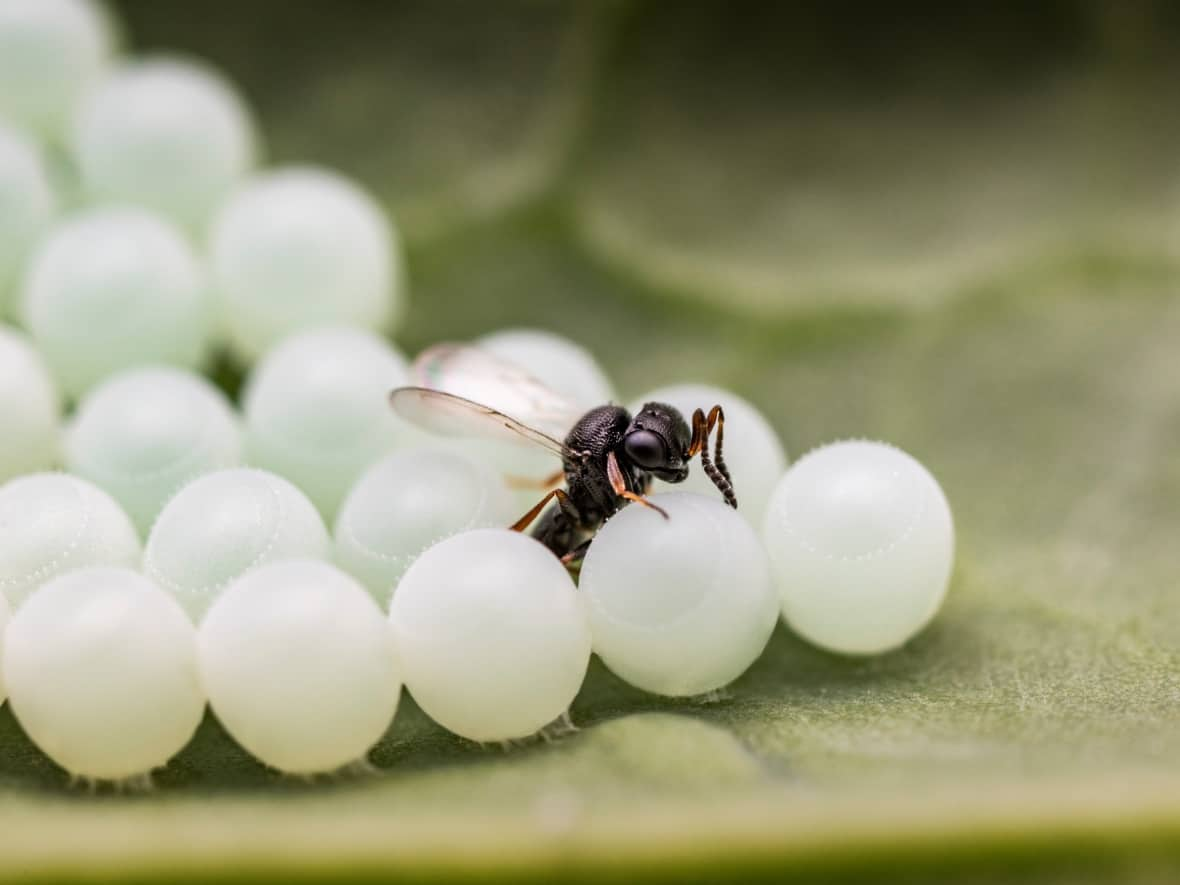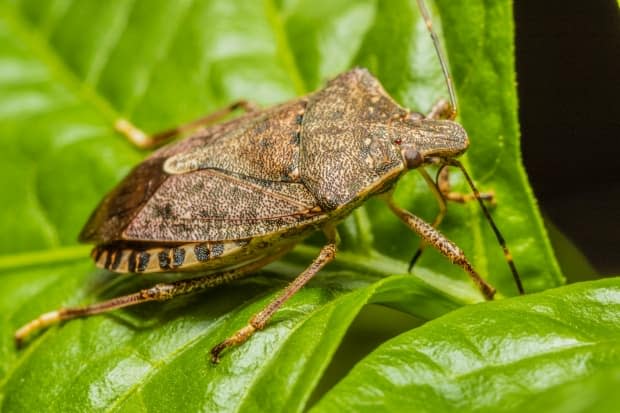Samurai wasps poised to help B.C. with its stink bug problem

Brown, smelly bugs have been causing quite a stink in B.C.
The province's invasive species council recently sent out a warning about the brown marmorated stink bugs, which are chomping on a wide variety of plants and also looking to get into your house for the winter.
The number of British Columbians spotting the pests seems to be abnormally high, but experts say that doesn't necessarily mean they're worse this year.
"It's hard to say this year whether it's overall worse than in previous years," said Paul Abram, a research scientist with Agriculture and Agri-food Canada, explaining that the number of stink bugs in specific towns or regions tends to shift from year to year.
Stink bugs threaten crops, orchards and backyard gardens because they eat apples, grapes, peaches, berries, peppers, beans, tomatoes and hazelnuts.
"What we think we're seeing this fall is, because the fall is so unusually warm, the stink bugs are a lot more active — so people are seeing them more," Abram said in an interview.
Abram says he and his team on an experimental farm in Agassiz, B.C., are working to map out the DNA of the stink bugs in the province. Their research shows the local species is more closely related to brown marmorated stink bugs from China than Japan.
The bugs are present in Metro Vancouver, the Fraser Valley, on Vancouver Island and in the Kelowna area. The working theory is that they travelled with goods shipped from Asia when they started appearing in B.C. in 2015.
The good news: one of their natural predators also appears to have hitched a ride.
"We first found the wasp [in B.C.] in 2019," said Abrams, describing the parasitic samurai wasp as a "potential biological control agent" that's been used to fight off stink bugs in other countries.
Samurai wasps lay their eggs inside stink bug eggs and take about a month to emerge — killing the stink bug embryo in the process. Abrams says it's possible that when the bugs made their way overseas, the wasps came with them.
He and his colleagues have been monitoring the wasps to see if they're killing enough stink bugs to really drive down their numbers in B.C. While he says they didn't see many samurai wasps in the year after they were first discovered here, the last two years have been more promising.
"In 2021 ... we saw sometimes up to 80 per cent of the stink bug eggs were killed by the wasp," he said.
"And we found it again at several locations this year, including in the interior in Kelowna as well as the Lower Mainland."

Province asking people to report, kill stink bugs
Katie Marshall, an entomologist and an assistant professor at the University of British Columbia's department of zoology, says if you see a stink bug, you should let the province know.
"The B.C. Invasive Species Council has asked British Columbians to submit reports if they see them," she told CBC's The Early Edition.
Marshall says B.C. is trying to manage the stink bug population without disrupting other parts of the ecosystem, adding that the bugs have caused "millions of dollars of damage" to apple and grape crops.
She also mentioned samurai wasps as an interesting piece of the puzzle and a potential solution. When it comes to destroying the pests people pick off their plants, Marshall says there are a couple of options.
"You can put them in soapy water, and they'll drown. My personal favourite method is to stick them in the freezer and freeze them solid," she said. "But you do want to make sure they spend a good 24 hours in there."
Hope for the future
Abrams says the B.C. Ministry of Agriculture and Agriculture and Agri-Food Canada also enlisted the public's help this summer, asking for volunteers to collect and hand in stink bug eggs.
That project wrapped up at the end of August, but he says it will be back next year, part of an effort to see how widespread the wasps are and measure the impact they're having controlling the brown marmorated stink bug population.

While other countries like the U.S. and Italy have reared and released samurai wasps to deal with major infestations, Abrams says doing that on a large enough scale to make a difference is "extremely expensive" and not feasible in British Columbia.
"The hope is that the natural populations of these wasps will spread and sustain themselves and attack enough of the stink bugs to dampen their populations," he said.
Abrams says it will be a while before he and his colleagues can report definitive results.
"This type of ecological interaction, it often takes years to stabilize," he said. "It's going to be at least another few years before we know."


